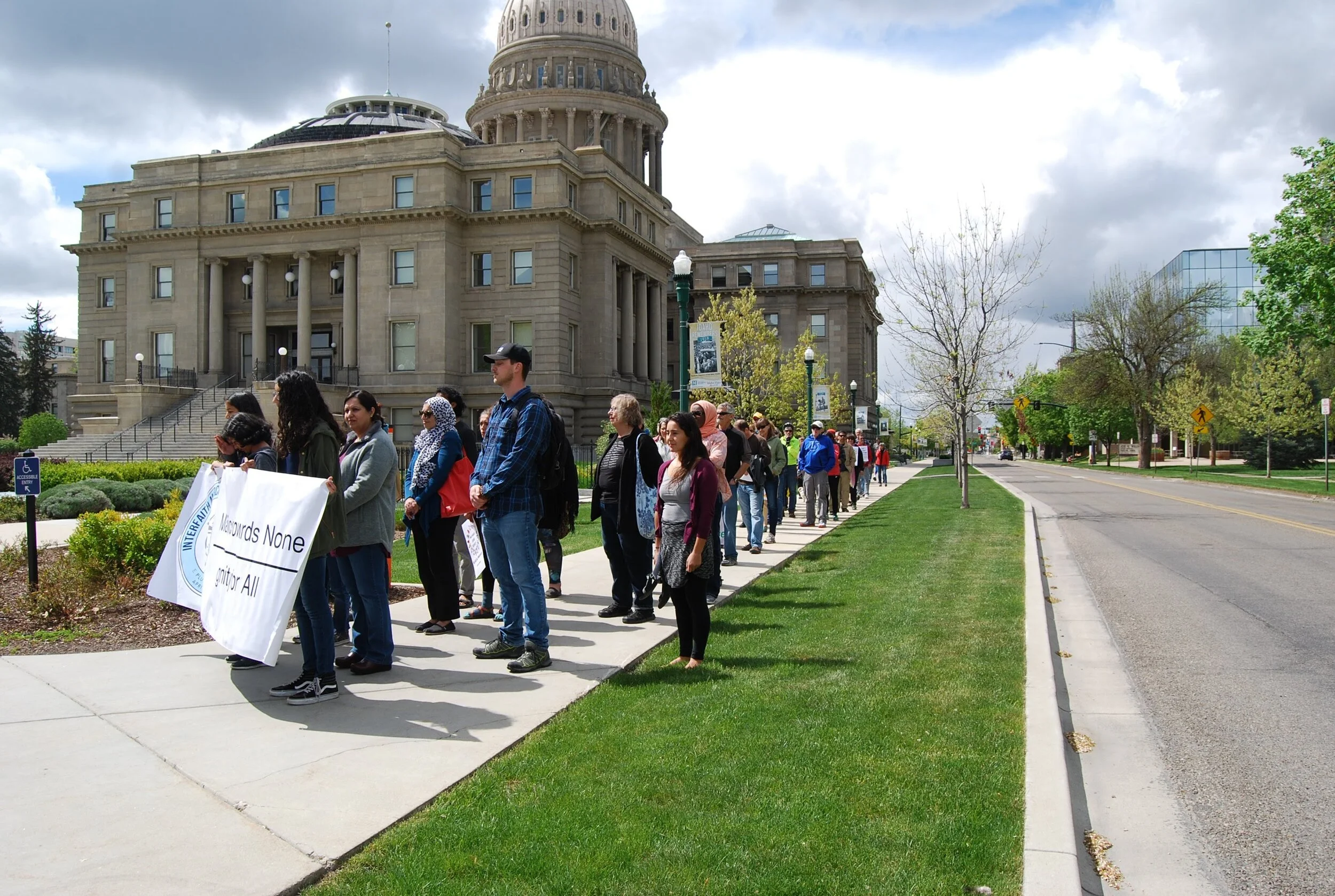Pakistani Friends Seeking Peace
by Martin Brooks
My friend Dr. Babar is a Pakistani physician and a leader in the local mosque. We were working together to organize a “Pakistani Peace Feast” at which we planned to get Christians and Muslims in the same room, sharing a meal around the same table, and talking about Pakistan.
“Martin,” Babar said over the phone, “the US State Department has eight Pakistani journalists visiting Louisville this week. Should we invite them to the Peace Feast?”
And so it happened. Seventy-six people came to Taj Palace. Roughly half were Muslim and half Christian. The journalists were spread throughout the room. As the event organizer and host, I asked questions for the tables to discuss:
What have been the lasting effects of colonialism on Pakistan?
The U.S. and Pakistan seem very different, culturally, and yet we have been political allies. Why is that?
As U.S. citizens, we hear conflicting stories about drones. Sometimes we hear the Pakistani people are very angry about innocent lives that are lost in the drone attacks. Other times we hear that the Pakistani government authorizes the drone attacks to eliminate their enemies, while the U.S. is assigned the blame. As a Pakistani journalist who reports these things, would you share your personal perspective with your table?
I could not hear all of the conversations at the tables, but the room was electric with passionate responses. Christians and Muslims, a few Hindus, and a few others with various backgrounds were sharing their ideas with each other. They were talking to each other instead of talking about each other. They were able to follow up with their own questions and clarifications. I caught the eye of Babar across the room. He smiled, delighted with how things were unfolding.
After each table discussion, one of the Pakistanis took the microphone and gave his views about the current question to the entire room. Tears were shed when one man spoke of the lasting legacy of feudalism that was the precursor of colonialism. “After hundreds of years of being a servant to someone,” my new Pakistani friend said, “it does something to the psyche of the people.” Many in the U.S. cannot identify with his comments. Some do not know that Pakistan was a British colony until 1947. Some don’t know where Pakistan is located or that it was part of India. In the last week, I have even met some who don’t know what drones are. The Pakistanis know.
Over dinner Pakistani journalists had an opportunity to tell their story directly to a few American people. One of the Pakistani journalists bristled as she realized the man across the table had served in the US military. With a humble spirit the military man said, “I was only trying to help.” Her countenance softened. By the end of the evening, they were having their photos taken together. I wonder if she will write about that encounter. Even with the sometimes broken English, I think there was a deep level of communication and a greater understanding as people from around the globe met face-to-face.
As the evening drew to a close, the journalists presented my wife and myself with ajraks, very nice traditional pieces of cloth that are worn around the shoulders. One of the Pakistani physicians took the microphone and said that what we had done that evening needed to be replicated all over the world, especially in his home country of Pakistan. We did not solve all of the world’s problems that night, but we did gain some new perspectives, make some new friends, and possibly plant some seeds for the Prince of Peace. May they grow and multiply.












